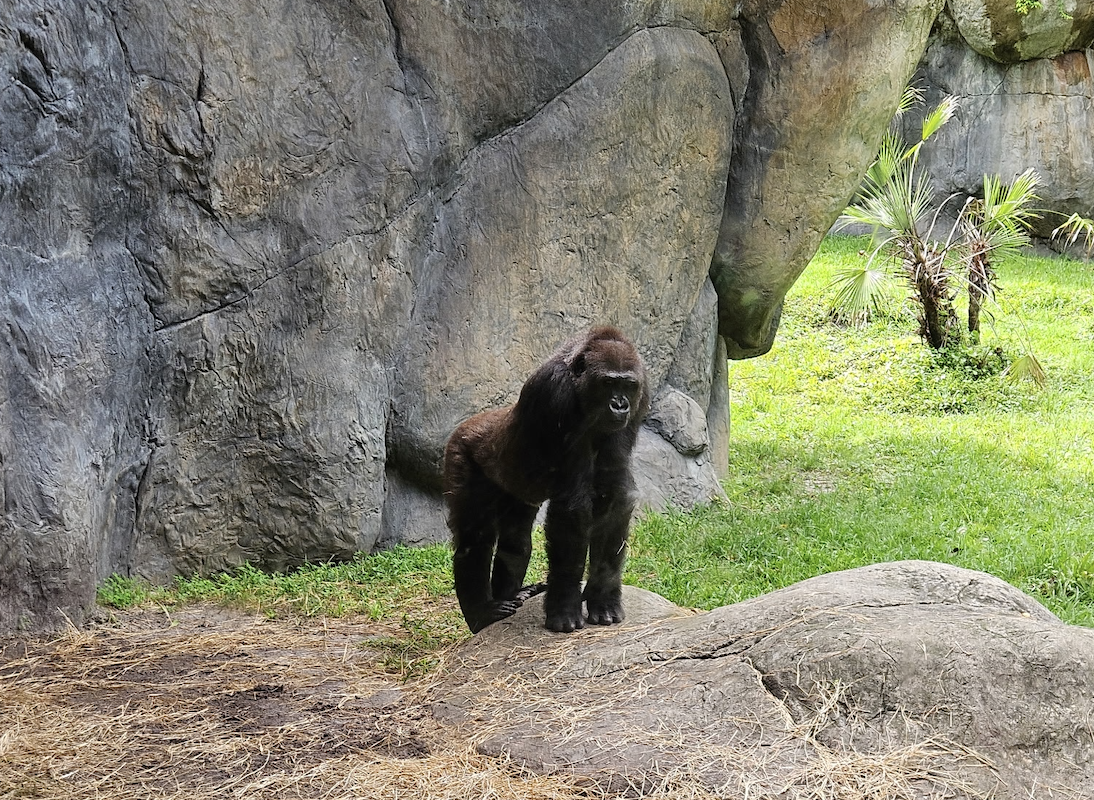On Oct. 1, 2025, chimpanzee expert Dr. Valerie Jane Morris-Goodall, better known as Jane Goodall, died at the age of 91. Goodall dedicated the majority of her life and career to studying and reporting her findings on chimpanzees.
“Her work was, and still is, extremely important for primates and ecosystems,” said Margaret Drumsta, the Advanced Placement (AP) Environmental Science teacher at Plant.
Goodall worked from the age of 23 to her death at 91. She passed in Los Angeles, California, in her sleep amidst a speaking tour in the United States according to The Jane Goodall Institute’s official statement.
As seen in her enthusiasm for the topic late into her life, Goodall was active in her representation of primates and her research of this. This is reflected in the personal statements of Plant students when asked about Goodall’s achievements.
“I think that she was a great person, and I hope that her legacy will carry on,” Avery Heird (12) said, “and the work that she did and her influence lives past her mortality.”
Similar to many students at Plant, Heird grew up hearing about Goodall and her many achievements for both the scientific and feminist world. Although Heird does not plan on going into a field of science, Goodall still had an impact on her life, serving as a source of inspiration and a reminder to stay determined.
Another student, Reese Murtagh (11) said, “My grandma gave me a Who Was book about her and I always thought she was interesting and the work she did was amazing and how they acted just like us.”
Murtagh learned about Goodall at a young age, when the scientist had already undertaken research on chimpanzees. Others, including Drumsta, the environmental science teacher at Plant mentioned earlier, may have learned about Goodall while she was achieving these accomplishments.
Drumsta said, “As a little girl growing up, I loved learning about her and if she could do science. I could do science so all my digging in the dirt, playing with bugs and majoring in biology meant something.”
Goodall’s work spanning many decades has influenced multiple generations. Her persistence in overcoming gender barriers at the time inspire many young females today to follow their passions despite any stigma they might face.
In Goodall’s era, women often did not receive an education and opted for a stay-at-home lifestyle. Those that did receive an education, however, typically did not continue beyond a college degree.
In 1966, Goodall busted through present barriers by earning her undergraduate degree from the University of Cambridge and a Ph.D. in ethology—the study of animal behavior— according to The Center for Women’s Health.
Goodall went on to use education to not only expand her knowledge, but also to advance the entire scientific community’s understanding of primates. As mentioned earlier, her research even became influential enough that she founded an institute dedicated to primate research, centering specifically on chimpanzees.
In summary, Goodall made significant contributions to primatology and helped increase opportunities for women in the field during her time.

